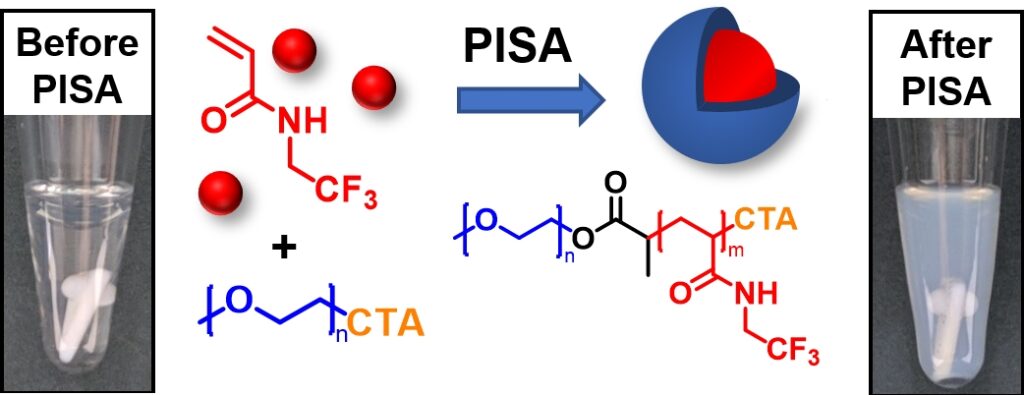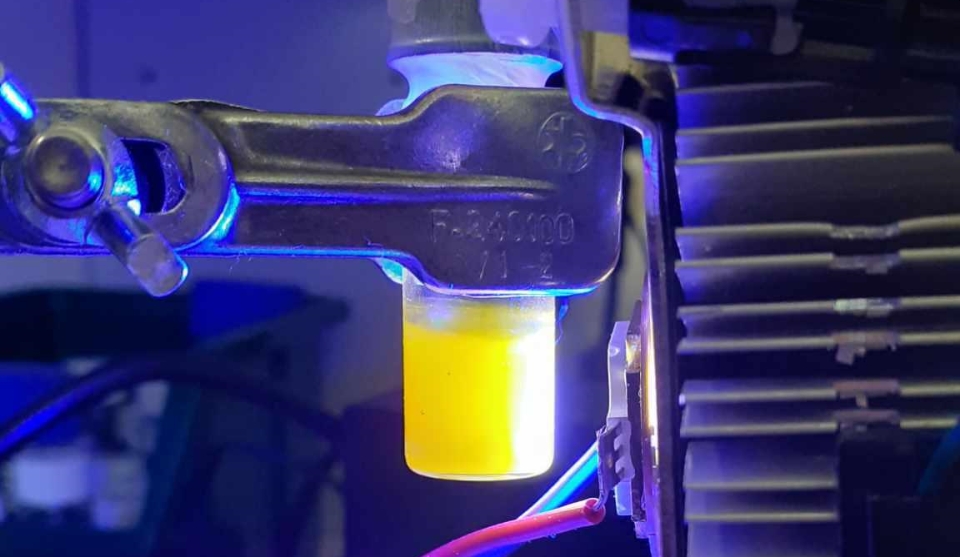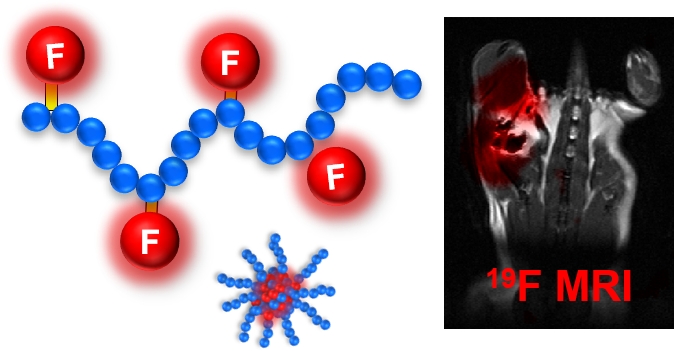We develop new polymerization methods to synthesize smart polymer materials for biomedical applications

Polymerization-induced self-assembly
We develop advanced nano/biomaterials by the modern technique of polymerization-induced self-assembly (PISA). PISA is a cutting-edge technique in polymer science that enables the formation of well-defined, nanoscale structures directly during the polymerization process. These nanoparticles are particularly promising for drug delivery systems, as they can encapsulate therapeutic agents and release them in a controlled manner at the target site.
Chemistry of poly(2-oxazoline)s
Poly(2-oxazoline)s are a versatile class of synthetic polymers with tunable properties, and excellent biocompatibility. Their unique structure allows for precise control over molecular weight, hydrophilicity, and functionalization, making them highly adaptable for various biomedical applications, such as drug delivery, tissue engineering, and medical diagnostics. Our research group focuses on harnessing these properties to develop innovative solutions for current biomedical challenges.


Photocontrolled radical polymerizations
Photocontrolled radical polymerizations are innovative techniques that use light to precisely control the polymerization process. By leveraging light as a stimulus, these methods allow for the fine-tuning of polymer architecture, molecular weight, and functionality with spatiotemporal precision. This level of control is particularly valuable in the development of advanced materials for biomedical applications. Our research group explores these light-driven polymerizations to create next-generation materials for targeted drug delivery and diagnostics.
Fluorinated polymers for 19F MRI
We develop novel water-soluble fluorinated polymers as highly sensitive tracers in 19F magnetic resonance imaging (MRI). On this topic, we collaborate with the group of Prof. Daniel Jirak at IKEM.
